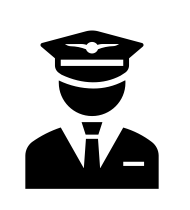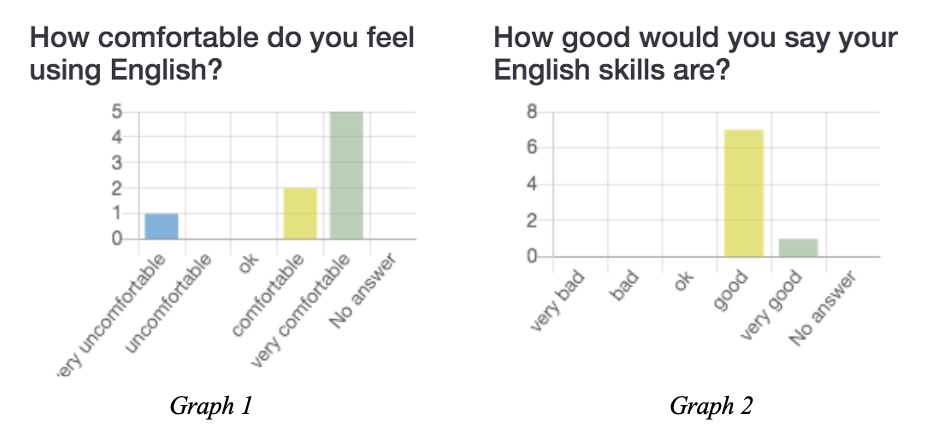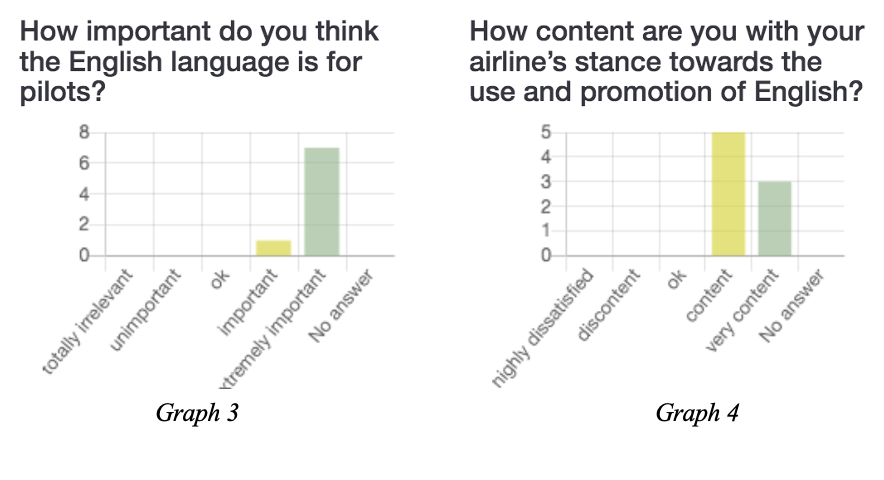Ready for Take-Off? – English in the Daily Life of Pilots – by Nina Merkofer
Language/BusinessHave you ever wondered about the two mysterious figures sitting in the cockpit, entrusted with the lives of hundreds of passengers? How did they get there? And what does it take to wear the pilot’s hat?

Among many other qualities, it takes a good amount of English language skills. But how good exactly? And how much English do pilots really use on the job?
The English language connects people all over the world. With its ongoing rise as a global lingua franca (i.e. THE world language), it is needless to say that English is becoming increasingly important for internationally operating companies – especially airlines. Yet how important the language is in the everyday lives of their pilots is relatively unknown. Thus, I wish to investigate this relationship between pilots, airlines, and English some more: How, why, when, and where do pilots use English on a regular day in the sky?
At the start of my research voyage, I contacted a group of pilots from Switzerland all working for the same airline. Ten of these pilots agreed to fill in my questionnaire, in which they were asked to self-evaluate their feelings towards the English language and its importance for pilots, their use of English on the job, and their contentment with the language policies of their airline. I really wanted to focus on the pilots’ perceptions of the role of English in the aviation industry of Switzerland.
My questionnaire was built of two parts: First, the pilots were asked to rank (1) their love of the English language, (2) their personal assessment of their English skills, (3) the importance of English for their job, and (4) their airline’s role towards English. Then, in the second part, my questions called for short answers about their use of English at work, the current state of language policies of their airline, and about possible future developments in terms of English promotion.
As a side note: My pilots are all male and rather young (between 28 and 34 years of age). They are mostly Swiss (to be exact: six are Swiss, two are German, and two have multiple nationalities, amongst which were also either Switzerland or Germany). Thus, all of my participants speak (Swiss) German as their first language (L1).
Looking at their answers in Graph 1&2, I notice that my pilots appear to have a great deal in common. They all made a good assessment of their own language skills, which is probably due to the fact that the hurdles of becoming a pilot are quite high, and so are the standards for their English proficiency. As one of my participants even mentioned, their use of English is subject to regular testing. Furthermore, they all appear very comfortable with using the language. Yet there is one exception however: One person marked that they were very skilled but felt very uncomfortable using English – this may be because it is not the main language used between colleagues. English is seen as “work talk” and is not as suitable for small talk between co-workers. This does, however, change when there is a non-native German speaker in the cockpit (or in the vicinity in general); then, the pilots state that they use English throughout the conversation out of respect for that person.

Moving on to Graph 3&4, it seems that there is an overall agreement that English is of (very) high importance in the daily lives of pilots, and that they are quite satisfied with how their company handles the use and promotion of the language. This makes sense, as the job entails lots of intercultural communication. Whether this is with passengers or crew members from all over the globe, or with ground control in outposts (i.e. international airports) – it is vital that everyone understands everything! This is why English is a great and necessary resource in a pilot’s life.

All of them mention that they use English every day – esp. in flight (e.g. for radio communication and for announcements), but not only that: They also use it a lot in meetings and briefings before and after flights. All manuals and official documents are in English, as well as their regularly used jargon (here: “air talk”). This means that English is their default language for all non-personal communication. In the words of one of my pilots, their target audience for English is very straightforward: “National co-workers in flight. International co-workers on the ground.”
Interestingly, first minor differences appear when asked about whether their language skills were valued as an asset by their airline. The larger part of the group agrees that it is somewhat valued, whereas two pilots disagree: “It’s more a requirement than an asset” and “no, the company only cares about reaching the minimum required level. Any additional language skills make your work life easier, but are not rewarded in any way.” It seems that extra language skills do not lead to any kind of recognition, and differences in skill above the bare minimum are not rewarded.
Still, to a large part, the pilots are content with their airline’s policy and encouragement of language skills. They mention that the entry levels are already very high, and that there is even the possibility to enroll in English courses to better your skills. However, one pilot states that at one point, management overdid it when they changed their policy to make English communication mandatory. This pilot saw no gain when two L1 speakers of the same language use their L2 language to communicate with one another. Even so, there was a unanimous consensus that no language policy change was necessary: They all like the mix of having the official stuff conducted in English and leaving the rest up to the individual.
These results may not come as a shock – my pilots all have a (very) good background of English education and they all seem to understand its necessity in the aviation business. Obviously, my small research has its limits: Ten pilots cannot speak for the whole “air community” – but it is still an interesting starting point. Also, the English which pilots use is not a normal style vernacular English but specifically suited for air communication. This means that there are lots of specific terminologies and even different pronunciations. Regardless, it says a lot about language use up in the air. So, while it may not be perfect, the ten pilots I have been in contact with are quite content with the language situation of their airline; they feel ready for a future which promises to hold more and more English in its carry-on bag.
BRAVO YANKEE ECHO
by Nina Merkofer